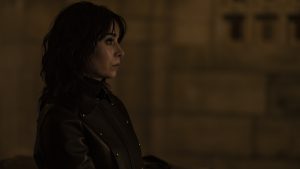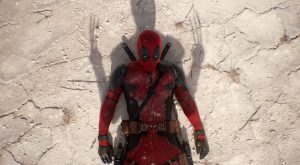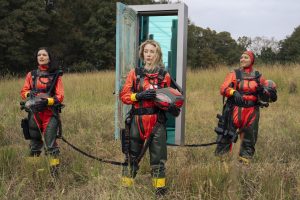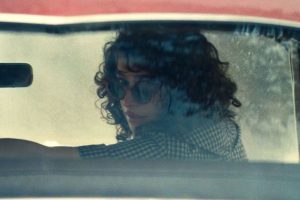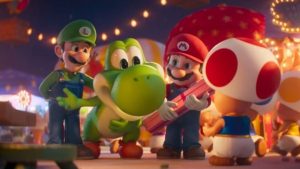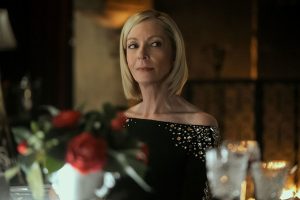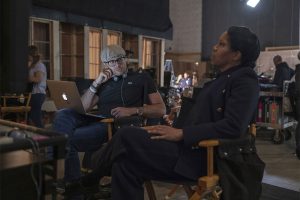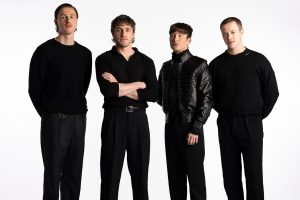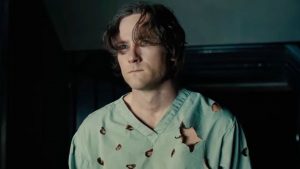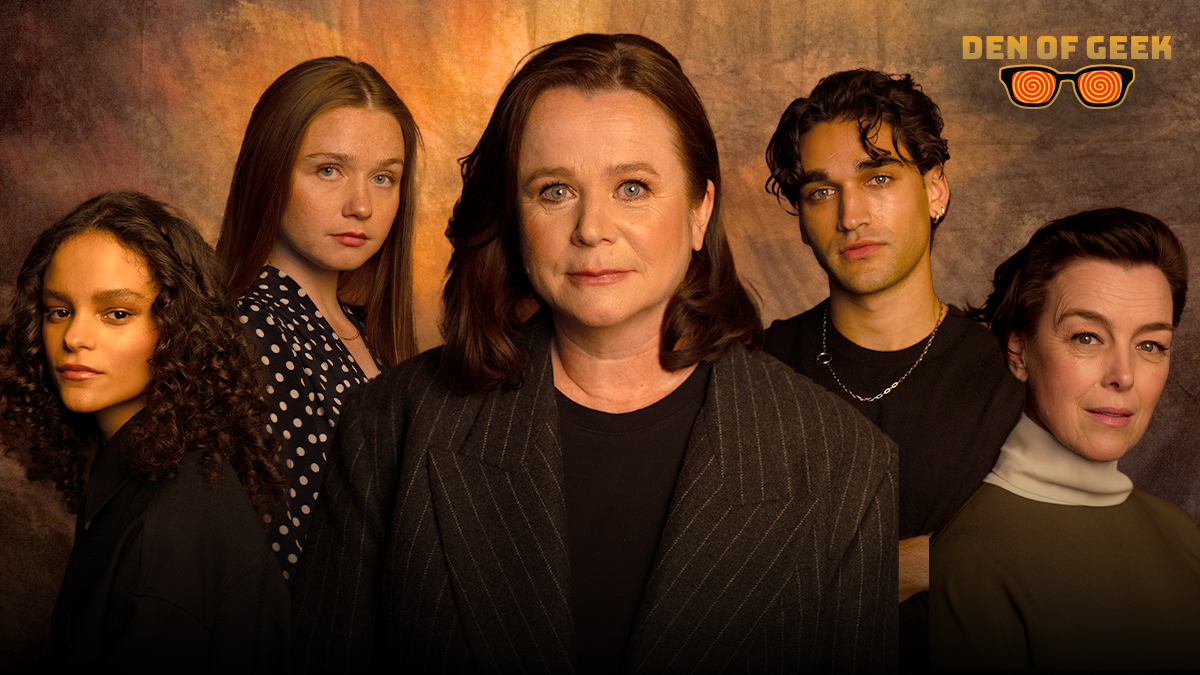
As dense as the world of Dune might be, as laden with made-up names and places and histories as it gets, those first introduced to Frank Herbert‘s work through the Denis Villeneuve films have two basic character types to follow. Atreides are good guys, Harkonnens are bad guys, right?
Well, not so fast says actor Jessica Barden, who plays the young Valya Harkonnen in the upcoming HBO prequel series Dune: Prophecy. “You’re coming to it with a huge preconceived idea about what a Harkonnen is,” Barden tells Den of Geek when the cast visits our NYCC studio. “So you’re coming to [the show] thinking like, ‘Is this a villain? Is this a psychopath? Is this just a regular young person who has a thing she wants to avenge in the way we all do in some way?” Although Barden admits that Harkonnen is a “pretty angry young person,” she also sees Valya as “really vulnerable and really determined to take over the universe, which is completely incredible.”
Okay, maybe that doesn’t sound like exactly good guy behavior, but that moral ambiguity has always been a compelling part of Herbert’s novels and part of the appeal for Barden and her cast mates. Based in part on the novel Sisterhood of Dune by Brian Herbert and Kevin J. Anderson, Dune: Prophecy takes place approximately 10,000 years before the first film (a number that makes a lot more sense when we remember that the first Dune occurs around 21,300 years in the future). The show follows the rise of the Bene Gesserit order, especially as charted out by sisters Valya and Tula Harkonnen.
For Barden, the massive mythology and timeline deep in the future doesn’t intimidate because the subject matter is so relatable. “That’s why Dune is so incredible, because it’s borrowing things that we deal with in every day life, like what is the truth in all these wars?”
That’s a perspective shared by Emily Watson, who plays the adult Vayla in the main timeline of Dune: Prophecy, and Olivia Williams, who plays her sister Tula. On Watson’s advice, Williams and her co-star prepared for their roles by “going to look at the Tudor portraits of Elizabeth I and Mary Queen of Scots at the National Portrait Gallery, a couple of sisters who had varying degrees of closeness and separation, as history has shown.”
Indeed, while Watson describes herself as a “Dune virgin” and admits she was first introduced to the world via the Villeneuve films, she finds her way into the world by focusing on the relatable ambiguities of the characters. “For me, it’s a properly complex human story,” Watson tells Den of Geek. The Harkonnens are a “properly messed up family, with a lot of trauma and a lot of messed-up relationships, and then they’ve given themselves to this powerful organization that is trying to control pretty much every aspect of the universe.”
Yes, Watson again makes Valya sound a little villainy, but she also disputes that label. “You never play a villain,” she explains. “You always play a person who thinks they are blessed with the right way of seeing things… Valya is utterly convinced that she alone can see the right way forward for humankind.”
Even those who haven’t read Herbert’s sequel books, Dune Messiah or Children of Dune, or know about the Golden Path followed by Paul and the tyrant Duke Leto II in later books, can see that Watson’s description also refers to the apparent hero of Villeneuve’s first two Dune movies.
The show has two steady guides in showrunner/producer Alison Schapker and executive producer Jordan Goldberg. “Dune: Prophecy was a real opportunity to allow us to explore different worlds and different characters, and that was exciting because anything outside of Arrakis hasn’t really been touched. We were really eager to do that,” Goldberg says.
Schapker, a fan of Herbert’s work since her teens, also got help from Villeneuve himself. That said, she’s quick to point out that Villenueve and Frank Herbert’s son Brian, co-author of Sisterhood of Dune, gave the show their blessing to go in different directions, even as it exists in the same continuity as the movies.
“I’ve spoken with Denis and he’s very supportive, but he’s also very busy doing his own projects. He grounded a universe, but our show takes place 10,000 years before the film, so we’re very much free to be creatively exploring our story,” Schapker explains. Although Dune: Prophecy is inspired by Herbert and Anderson’s Schools trilogy, which also includes Mentats of Dune and Navigators of Dune, Schapker reminds viewers that the show takes place “a couple decades out from that.”
“At the same time we’re really grounded in the characters, their backstory, and the world as depicted in the book has been a guiding map for us, but also we have the freedom to extrapolate and grow the world a bit,” she adds.
Most might find the idea of adding to an already rich world intimidating, but not Prophecy’s cast.
“I find it quite comforting to be part of something so much bigger than anything we can really do,” Barden says. Josh Heuston, who portrays Emperor Javicco’s illegitimate son Constantine Corrino, agrees: “There’s so much lore associated with the text, so there’s so much to dive into. It’s not like you’re starting from scratch.”
Indeed, as Heuston and his co-stars dive deeper throughout Dune: Prophecy, they’re finding what every actor hopes for: real and complex people, people who don’t fit easily into good guy and bad guy categories — even if their last names are Harokonnen or Atreides.
Dune: Prophecy debuts on Max and HBO on Nov. 17.
The post Dune: Prophecy Will Challenge Assumptions About the Harkonnens and Atreides appeared first on Den of Geek.


